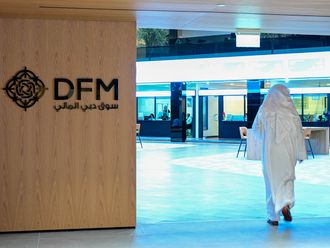With Brexit getting activated last month, the free trade zone between the GCC and UK, which we had expected earlier as a result of Brexit, seems to be closer than ever thanks to both sides’ keenness to develop on their commercial, trade and historical relations. It has touched unprecedented levels, thus serving the interests of both parties.
The UK Ministry of Finance has done a study with predicated results — including political and strategic ones — from finalising a free-trade agreement with the Gulf states. This in fact explains the great interest shown by Prime Minister Theresa May to enhance her country’s relations with Gulf states while attending the GCC Summit held in Manama last year.
The Gulf countries have put forward an initial draft for a free-trade agreement. Such steps reflect both parties’ keen interest in concluding the agreement as soon as possible, mostly because the UK is familiarised with the impediments created by the European Commission, which hindered inking such an agreement with the GCC for long time.
Boosting GCC-British relations have been a proposed idea over decades though a number of measures like a free-trade agreement, which would help abolish customs duties. But having been part of the European Union (EU), the UK was not able to take such an important step, keeping in mind that similar endeavours between the GCC and the EU have been fruitless for more than a quarter century. And more so after the practical suspension of talks between the sides in 2008.
Brexit
With the UK leaving the EU, the road ahead for a free-trade agreement seems to be open, particularly as the GCC already has similar agreements with many countries and blocs. The UK is presently striving to conclude an agreement for many reasons, foremost of which is an attempt to offset some of the probable economic and commercial losses on leaving the EU, which accounts for more than half of the its trade.
Therefore, the fast-growing Gulf markets are seen as an important outlet for British exports, especially because of its currency dip after the Brexit referendum. This gives its exports a competitive edge and achieving remarkable gains though its imports from the GCC such as petroleum, petrochemical and aluminium products, which are trading at reasonable prices.
However, high customs duties imposed by the EU on such products for no reason had led to a decline in Gulf exports.
The volume of trade between the GCC states and UK amounted to $27 billion (Dh99 billion) and is to double after any free trade agreement. Plus, Gulf investments in the UK has exceed $140 billion, most of which are focused on real estate.
It is also expected that the UAE-British trade will go from $19 billion in 2015 to $33 billion in 2020.
Unprecedented growth
Besides the trade exchange, cooperation in fields like investments, financial services and tourism will also experience unprecedented growth, making the UK the most important partner for the GCC states at the expense of other EU countries, which are going through great difficulties.
As a preparatory step, the Gulf’s private sector, including chambers of commerce and industry, need to get ready for significant transformation in the relationship between the GCC and Britain.
Partnerships would be also perfectly possible between both sides’ private sectors, so that they can fully utilise the emerging opportunities.
Dr Mohammad Al Asoomi is a UAE economic expert and specialist in economic and social development in the UAE and the GCC countries.












